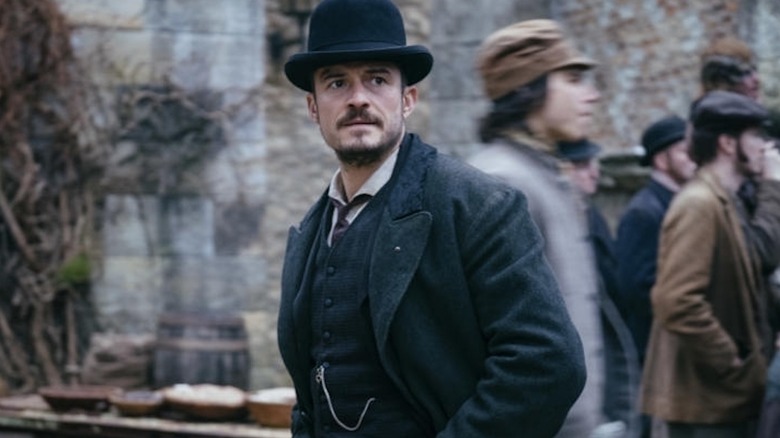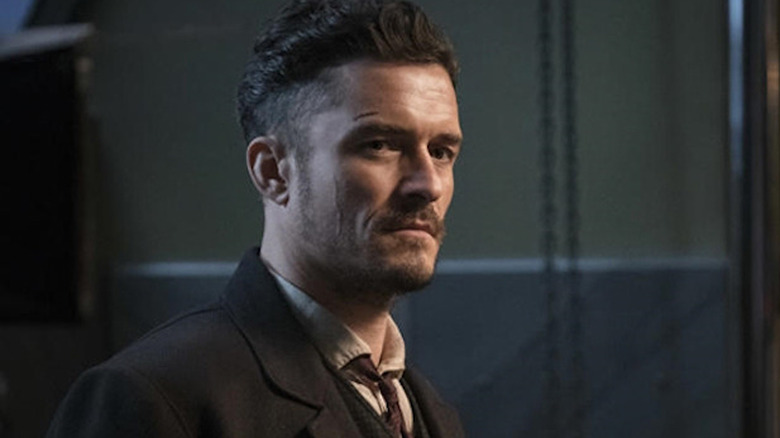Orlando Bloom Loves That Carnival Row Season 2's Finale Lacks A Hollywood Ending
Amazon Prime Video's "Carnival Row" may just be one of the most unique shows on all of television, focusing on a mysterious city called The Burgue where mythological creatures seek refuge once their homeland no longer becomes safe. The series centers around Rycroft "Philo" Philostrate (Orlando Bloom), an inspector following a string of murders that leads him to a dark conspiracy within The Burgue.
The ambition, scope, and originality of this series cannot be overstated, and as such, it should come as no surprise that the finale of "Carnival Row" wraps things up in perhaps the most non-Hollywood manner you could possibly imagine, with deuteragonist Vignette Stonemoss (Cara Delevingne) abandoning a possible relationship with Philo to return home, and Philo himself left alone in The Borgue after all the dust has settled. Although it might not be the ending we expected, Orlando Bloom himself appears to love this non-traditional ending.
"I think it's appropriate for the character. It's so true to life and honest, and I love it. It was important that all the actors playing the roles got to play out what they needed," Bloom explained to Collider. "Philo doesn't have anything to go back to because there was nothing. It was a sham, so where is he going to go now?" It's clear that this (admittedly) bleak ending really struck a chord with Bloom, and despite being a "non-Hollywood ending," he still absolutely loves how the series wrapped up.
The ending is bleak, but true to Philo's story and character
In the series finale of Carnival Row, Philo and Vignette contend with Leonora (Joanne Whalley) and the members of her revolutionary movement "New Dawn," which aims to dismantle the political system of The Burgue by sowing enmity between humankind and the fae. Although she is eventually cornered and subsequently dies by suicide, Leonora exposes plenty of the darkness that lies at the heart of The Borgue; darkness that Philo is forced to live with even after the events of the story have concluded.
Showrunner Erik Oleson says that the final shot of the series represents this sense of loss that Philo feels after the fight with New Dawn, this idea that he is supposed to move on despite all of the harrowing experiences he endured. "f you look at the final shot, which is a shot of Orlando on one side of The Burgue, it's sunny and kind of beautiful," Oleson told Decider. "On the other side of his head is storm clouds and it's gray. So, I wouldn't say that it's happily ever after." Oleson went on to explain that there is still a lot of work to be done in The Burgue, and plenty of social and political upheaval is still yet to come.
This is what Orlando Bloom means when he says that there is no going back for Philo. He's aware of the injustice within the city and knows that it still needs fixing despite their victory. It's an ending that is somewhat bleak, somewhat hopeful, and (for Bloom at least) very true to the character of Philo.

